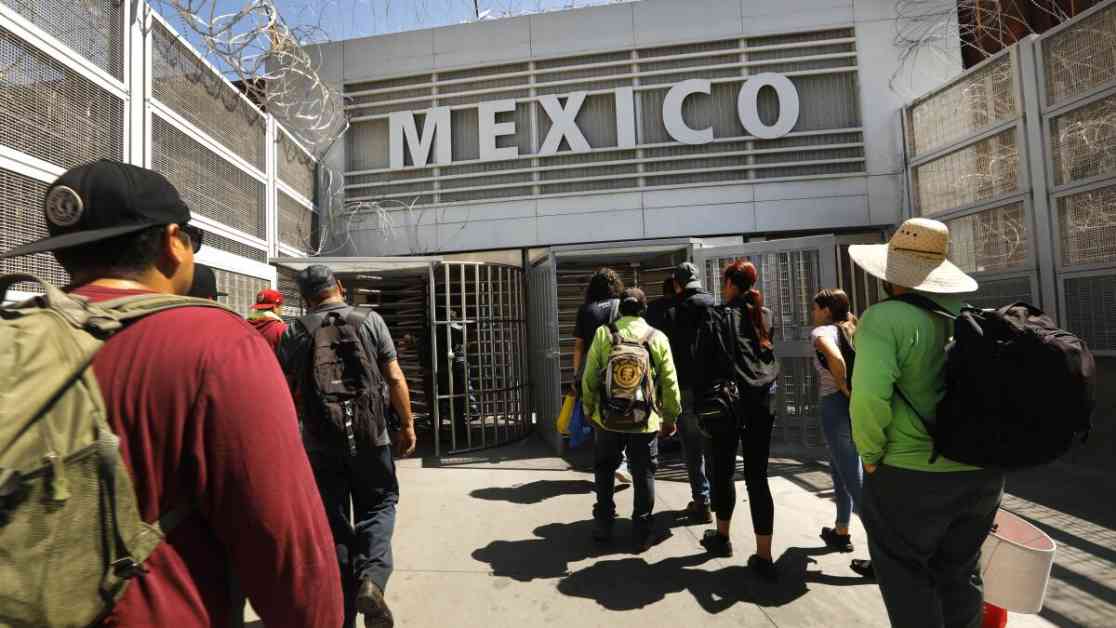President-elect Donald Trump’s intentions to implement his “America First” foreign policy approach have raised concerns about how Mexico will be impacted by his proposed strategies. Trump’s focus on deporting migrants, increasing tariffs, and potentially using military force against narcotraffickers in Mexico has sparked a wave of uncertainty and fear in the country. Mexican President Claudia Sheinbaum has already begun considering ways to counteract these threats and protect Mexico’s interests.
Challenges Facing Mexico
Trump’s proposed policies pose significant challenges to Mexico’s economy and society. The mass deportation of migrants could strain Mexico’s resources and infrastructure as it tries to accommodate the influx of people. Additionally, the increase in tariffs could severely damage Mexico’s crucial export sector, leading to economic instability. The threat of U.S. military intervention within Mexican borders raises concerns about sovereignty and the potential for increased violence.
Mexico’s Response Strategies
President Sheinbaum has outlined several strategies to push back against Trump’s threats. These include ending cooperation on drugs and immigration, imposing tariffs on U.S. goods, and revoking tax and labor privileges for American businesses operating in Mexico. By exploring alliances with other global powers, such as China, Mexico aims to protect its interests and maintain stability in the face of escalating tensions with the United States.
Potential Impacts and Opportunities
If Trump follows through with his aggressive policies, the consequences could be far-reaching. Consumers and businesses in both countries would bear the brunt of increased costs and disruptions to trade. However, China stands to benefit from a deteriorating U.S.-Mexico relationship, potentially expanding its influence in the region. A trade war between the U.S. and Mexico could open doors for Chinese goods and services, further complicating the already complex economic landscape.
In conclusion, the future of U.S.-Mexico relations hangs in the balance as both countries navigate the challenges presented by Trump’s administration. The decisions made in the coming months will have lasting effects on economies, businesses, and diplomatic relations in the region.
As we grapple with the implications of these potential changes, it’s essential to remember the human impact behind the political rhetoric. Families separated by borders, businesses struggling to adapt to new trade policies, and communities facing uncertainty—all of these are real consequences of the decisions made by leaders on the world stage. It’s easy to get caught up in the high-stakes political maneuvers, but we must not forget the individuals and communities whose lives are directly affected by these decisions.
Let’s take a moment to consider the stories of those who are caught in the crossfire of geopolitical tensions. How can we support and uplift those who are most vulnerable in times of uncertainty? How can we ensure that our policies and actions are guided by empathy and compassion for all those impacted by these complex geopolitical dynamics? These are the questions that we must grapple with as we navigate the shifting landscape of international relations.



























